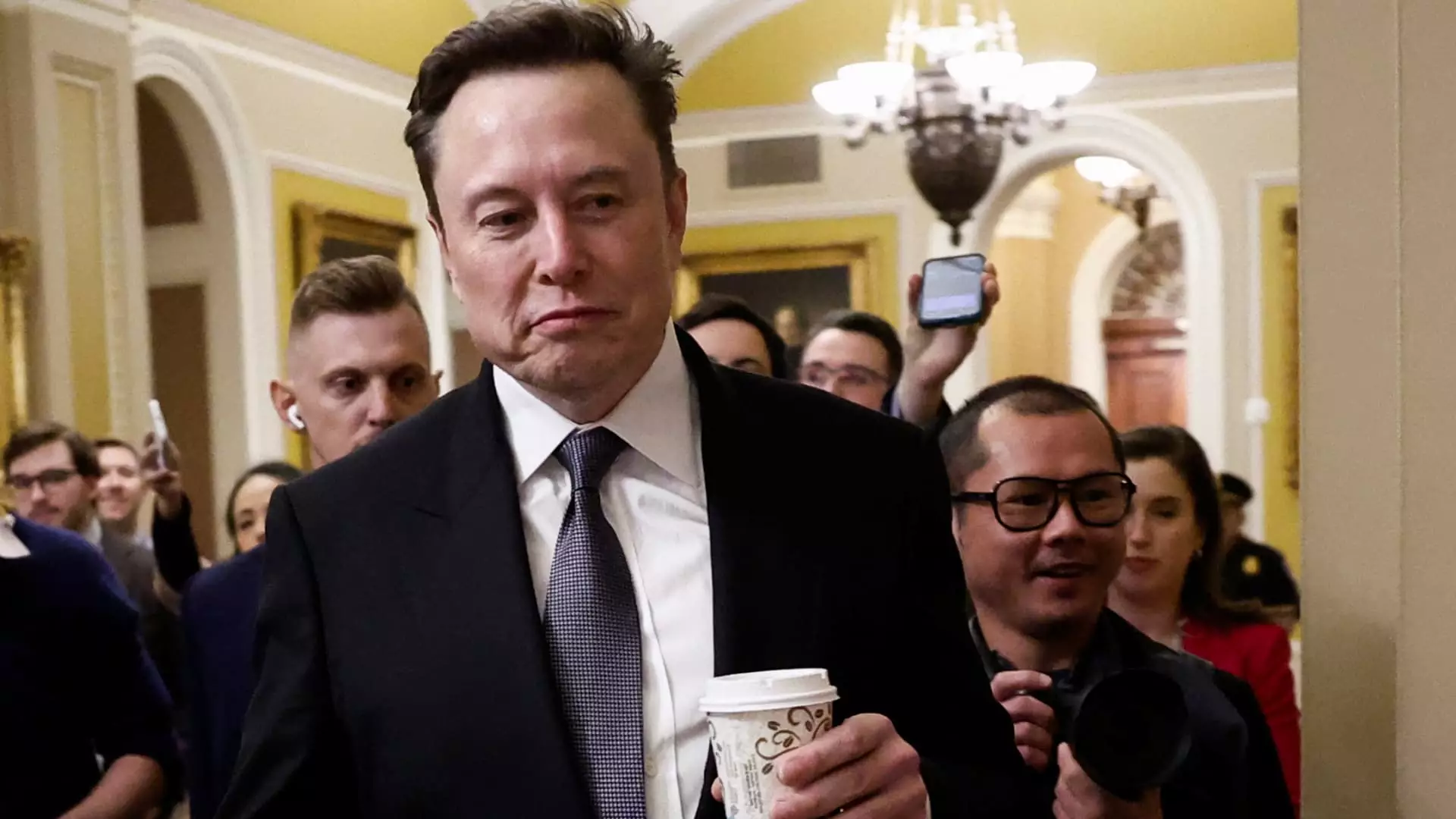The intersection of technology, economics, and geopolitics has never been more pronounced than in the contemporary landscape, particularly as the United States grapples with the implications of its relationship with China. Central to this dialogue are powerful figures such as Elon Musk, whose business decisions not only influence market dynamics but also shape national policy debates. Recent events have highlighted the tensions within Congress regarding a government funding bill aimed at regulating U.S. investments in China—a bill that, according to some House Democrats, succumbed to Musk’s business interests, revealing the broader implications of corporate influence on governmental affairs.
Recently, House Democrats, including Jim McGovern and Rosa DeLauro, voiced strong criticism against Republican colleagues for allegedly surrendering to the pressures exerted by Musk. The bill in question was pivotal in regulating American investments in China, specifically in fields such as artificial intelligence and quantum computing. McGovern lamented that the withdrawal of provisions meant to safeguard cutting-edge technology and American jobs demonstrated a significant policy failure. He emphasized in a series of posts on the social media platform X that more substantive progress could have been made had corporate interests not overshadowed national security concerns.
Musk’s business empire notably entertains significant stakes in China, where Tesla operates a factory without the usual requirement for a local joint venture. This business model grants Tesla unique advantages but also raises alarms about the implications for American technological edge and security. For instance, Musk’s commitment to sustaining and expanding operations in China has raised pertinent questions: Is economic gain worth the potential compromise of national interests?
Musk’s increasing entanglement with Chinese business interests serves not only his companies’ objectives but also delineates a critical point of frustration for policymakers. House Democrats have pointed out that Musk’s dependence on China for his operations could adversely influence U.S. strategies more broadly. McGovern’s assertion that Musk “wants to build an AI data center” in China resonates with a growing unease regarding which priorities will ultimately guide the tech mogul’s decisions in the face of geopolitical tensions.
The backdrop of this dilemma is underscored by China’s geopolitical maneuvers, particularly regarding Taiwan. Here, Taiwan’s status remains a highly sensitive issue, and Musk’s business decisions—such as withholding SpaceX’s Starlink services at the behest of Chinese authorities—have infuriated many. The complex dance between corporate ambitions and international relations raises a significant question: To what extent is it appropriate for business leaders to navigate or negotiate matters of national security?
DeLauro’s pointed letter to Congress characterized Musk’s obsequiousness towards the Chinese government as worrisome, labeling him a “President” in his capacity to shape political discourse, particularly in the context of his relationship with Donald Trump. Critics have raised alarms that such favoritism puts American innovation and security at risk, suggesting that corporate magnates wield more influence than elected officials. This is especially relevant in light of Musk’s substantial financial backing of Republican causes and his role as a key adviser to the incoming Trump administration.
Such dynamics hint at the broader trend of rich corporatization permeating political spheres—where financial contributions can potentially overshadow critical security issues. This scenario compels an inquiry into the ethical ramifications of such alliances, challenging the perception of what constitutes responsible corporate citizenship in an increasingly interconnected world.
As the U.S. contemplates its future, particularly in tech and international relations, it becomes paramount to examine how figures like Musk, who straddle the line between innovation and profit, influence policymaking. Congress finds itself at a crossroads, uncertain about the best course in balancing economic ambitions with national integrity. The ongoing discussions surrounding technology regulation and international relations will need to address these complexities to develop strategies that prioritize American innovation while safeguarding against external vulnerabilities. Ultimately, the dialogue surrounding Musk’s influence should serve as a crucial indication of the intricate relationship between capitalism and geopolitics in the 21st century.

